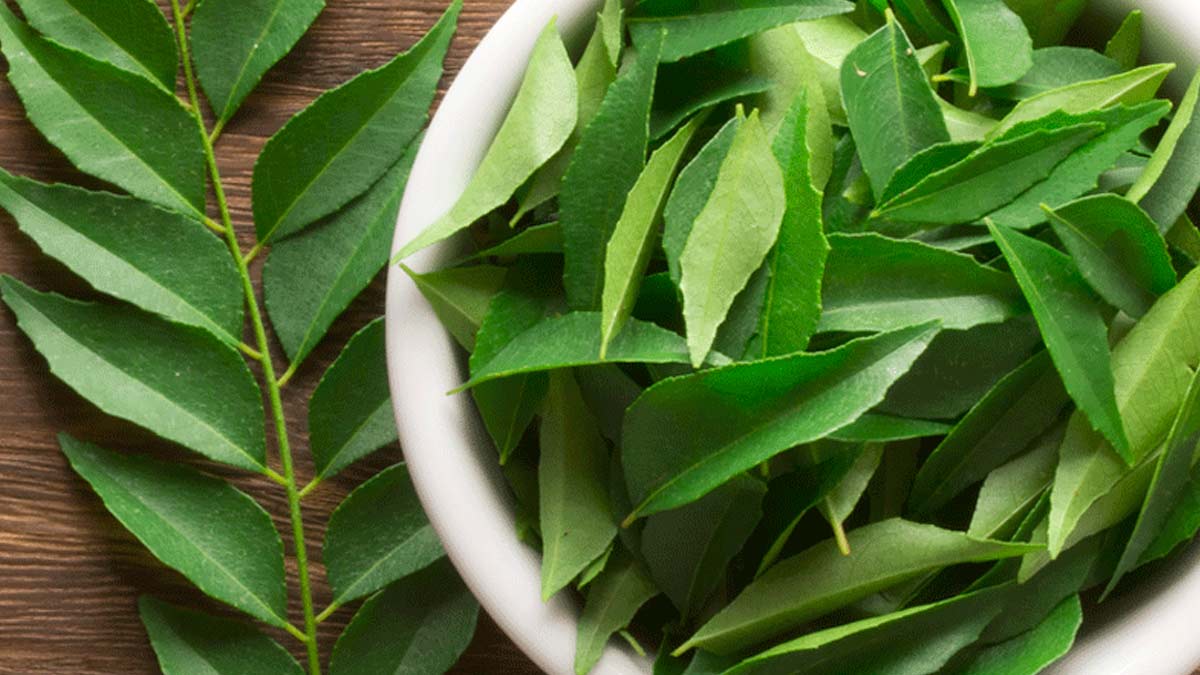
Curry leaves, commonly used in South Asian cuisine, are more than just a flavorful ingredient. Packed with nutrients and boasting potential health benefits, these leaves have garnered attention for their potential positive impact on well-being. However, like many dietary components, daily consumption of curry leaves comes with both advantages and considerations.
Pros of Daily Curry Leaves Consumption

A study published in the Oxford University Press relayed that curry leaves are widely used in Ayurvedic medicine worldwide due to their antioxidant, antidiabetic, anti-inflammatory, and antitumor properties. Here are some benefits of consuming curry leaves daily:
- Rich in Nutrients: Curry leaves are a nutritional powerhouse, containing vitamins A, B, C, and E, as well as minerals like iron, calcium, and phosphorus.
- Antioxidant Properties: Curry leaves are known for their antioxidant properties, which help combat oxidative stress in the body. Antioxidants play a crucial role in protecting cells from damage caused by free radicals.
- Digestive Health: Curry leaves have been traditionally used to aid digestion. They possess mild laxative properties and can help relieve symptoms of indigestion and nausea.
- Blood Sugar Regulation: Curry leaves may also have a positive impact on blood sugar levels. Regular consumption might contribute to better glucose metabolism, making them potentially beneficial for individuals with diabetes.
- Hair and Skin Benefits: Curry leaves promote hair health and prevent premature greying. They also contain compounds that may benefit the skin, providing a natural remedy for various skin conditions.
Also Read: Curry Leaves For Hair Care: How Does It Benefit Your Hair And Ways To Use It
Cons of Daily Curry Leaves Consumption

While curry leaves have proven benefits, consuming them daily might not be as beneficial for all:
- Alkaloids Content: While curry leaves offer numerous health benefits, they also contain alkaloids, which in high quantities might have adverse effects. According to an overview published in the Encyclopedia of Applied Plant Sciences, excess alkaloids may disturb the central nervous system, digestive processes, reproduction, and the immune system.
- Potential Allergic Reactions: Allergic reactions to curry leaves are rare, but some individuals may be sensitive to them. It's advisable to monitor for any signs of allergies, such as skin rashes or respiratory issues when incorporating curry leaves into the diet.
- High Oxalate Content: Curry leaves contain oxalates, which in excess can contribute to the formation of kidney stones in susceptible individuals. Those with a history of kidney stones should moderate their intake.
Also Read: Can Curry Leaves Aid Diabetes? Know From The Doctor
Curry leaves can be a valuable addition to a balanced diet, offering many health benefits. However, like any dietary choice, moderation is key. It's advisable to consult with a healthcare professional, especially if you have pre-existing conditions or are on medications.
Also watch this video
How we keep this article up to date:
We work with experts and keep a close eye on the latest in health and wellness. Whenever there is a new research or helpful information, we update our articles with accurate and useful advice.
Current Version